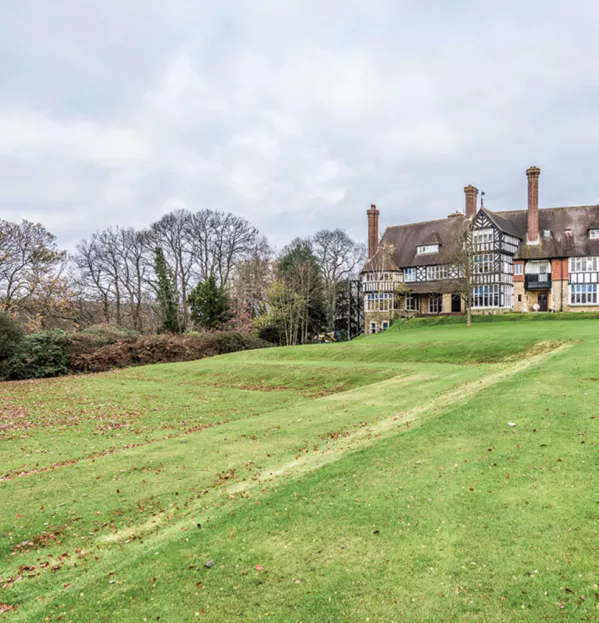
Concerns over new Durand boarding head’s conduct case

The embattled Durand Academy Trust has recruited a head of boarding for its controversial rural school who is subject to a professional misconduct hearing, TES can reveal.
The hearing is related to Grant Taylor’s former role at another boarding school, which is subject to allegations of sexual bullying between pupils. His appointment at Durand’s West Sussex boarding school has prompted at least one parent to raise concerns and withdraw their child, TES understands.
The news comes as the South London-based trust - already notorious for previously having one of the highest-paid heads in the country - continues a legal battle with the government over governance concerns that could result in its funding being withdrawn.
The trust has attracted headlines after Sir Greg Martin, the former executive head at the trust, was last year found to be earning nearly £400,000 a year, partly through a leisure centre he ran on the trust’s South London site.
Durand Boarding School in West Sussex, England’s first free boarding school, has previously faced planning battles, a race row and doubts over its financial viability. Companies House records show that its previous head of boarding, Hakim Taylor, left on 12 September.
Girls ‘not protected’
His replacement, Grant Taylor, who shares a surname but is no relation, taught at another boarding school mired in controversy - Stanbridge Earls School near Romsey, Hampshire - up until its closure in 2014.
Stanbridge Earls, for pupils with special educational needs, had been subject to a string of allegations of sexual abuse and bullying between pupils, including allegations of rape. A report published last October by Hampshire Safeguarding Children Board found that girls at the school were not “adequately protected”.
Mr Taylor taught at Stanbridge Earls at the time when serious instances identified by the report took place.
The report quoted NSPCC documents stating: “From the papers that we have, we believe that teachers in the school may have failed to take action in relation to sexual abuse [by pupils].”
In a separate but well-reported incident in 2013, pupils were taken to an outdoor pursuit centre in Scotland where they abseiled naked.
A Charity Commission inquiry into the school is ongoing.
Since Stanbridge Earls’ closure, Mr Taylor has been working as an educational consultant, including at Durand Boarding School.
In the education context, what happens if there’s an adverse finding - what would parents think?
Mr Taylor, along with the former headmaster and deputy headmaster of Stanbridge Earls, faced a three-day preliminary professional conduct hearing held on 8, 9 and 12 September by the National College for Teaching and Leadership. The subject of the hearing is not known.
It is understood that he was not subject to any police investigations himself, and TES has not seen any evidence to suggest that Mr Taylor was personally involved in the events identified by the NSPCC or the Hampshire Safeguarding Children Board reports, or in the events at the outdoor pursuit centre.
His roles at Stanbridge Earls included head of sport and house master, until he was appointed deputy head after the headteacher stepped down in 2013.
Further hearing dates in the professional conduct case are yet to be published.
It is understood that Mr Taylor’s appointment at Durand is on a consultancy basis for now, but the trust refused to discuss contractual details.
Kerren Daly, employment lawyer at Browne Jacobson LLP, a firm that specialises in schools work, said that she would normally advise governors to pause before recruiting someone subject to a conduct inquiry.
“If anyone in a profession is subject to an investigation by an appropriate external authority…it must be right that the governing body and senior management team of that organisation takes stock and asks itself, ‘Is it appropriate to take on this person now? Why can we not wait until the outcome of the investigation?’” she told TES.
“In the education context, what happens if there’s an adverse finding - what would parents think? And then what follows is a potential dismissal process. What about the reputation of the school?”
The Department for Education’s Education Funding Agency threatened to withdraw funding from Durand Academy Trust in July unless it carried out a list of governance changes by the end of August.
The trust refused to comply with the demands and has said it plans to challenge the DfE in court.
In 2014 it was told by the National Audit Office to strengthen its governance and take steps to prevent conflicts of interest, and last year it was hit with a “financial notice to improve”.
Grant Taylor declined to respond to TES’ queries, as did Durand Academy Trust’s acting executive headteacher, Mark McLaughlin.
Sir Greg also declined to respond.
A Charity Commission inquiry launched last February into potential conflicts of interest at Durand Education Trust, which owns land used by the academy, is ongoing. A spokeswoman was unable to provide a date for when it might conclude.
You need a Tes subscription to read this article
Subscribe now to read this article and get other subscriber-only content:
- Unlimited access to all Tes magazine content
- Exclusive subscriber-only stories
- Award-winning email newsletters
- Unlimited access to all Tes magazine content
- Exclusive subscriber-only stories
- Award-winning email newsletters
You need a subscription to read this article
Subscribe now to read this article and get other subscriber-only content, including:
- Unlimited access to all Tes magazine content
- Exclusive subscriber-only stories
- Award-winning email newsletters
- Unlimited access to all Tes magazine content
- Exclusive subscriber-only stories
- Award-winning email newsletters